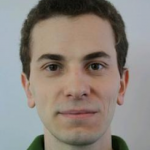Today is the final day of MIRI’s summer fundraising drive, and as of this morning, our total stands at $543,373. Our donors’ efforts have made this fundraiser the biggest one we’ve ever run, and we’re hugely grateful.
As our fundraiser nears the finish line, I’d like to update you on the new shape of MIRI’s research team. We’ve been actively recruiting throughout the fundraiser, and we are taking on three new full-time researchers in 2015.
At the beginning of the fundraiser, we had three research fellows on our core team: Eliezer Yudkowsky, Benja Fallenstein, and Patrick LaVictoire. Eliezer is one of MIRI’s co-founders, and Benja joined the team a little over a year ago (in March 2014). Patrick is a newer recruit; he joined in March of 2015. He has a mathematics PhD from U.C. Berkeley, and he has industry experience from Quixey doing applied machine learning and data science. He’s responsible for some important insights into our open problems, and he’s one of the big reasons why our summer workshops have been running so smoothly.
On August 1st, Jessica Taylor became the fourth member of our core research team. She recently completed a master’s degree in computer science at Stanford, where she studied machine learning and probabilistic programming. Jessica is quite interested in AI alignment, and has been working with MIRI in her spare time for many months now. Already, she’s produced some exciting research, and I’m delighted to have her on the core research team.
Meanwhile, over the course of the fundraiser, we’ve been busy expanding the team. Today, I’m happy to announce our three newest hires!
 Andrew Critch is joining our research team tomorrow, September 1. Andrew earned his PhD in mathematics at UC Berkeley studying applications of algebraic geometry to machine learning models. He cofounded the Center for Applied Rationality and SPARC, and previously worked as an algorithmic stock trader at Jane Street Capital. In addition to his impressive skills as a mathematician, Andrew Critch has a knack for explaining complex ideas. I expect that he will be an important asset as we ramp up our research program. On a personal level, I expect his infectious enthusiasm to be handy for getting members of the AI community excited about our research area.
Andrew Critch is joining our research team tomorrow, September 1. Andrew earned his PhD in mathematics at UC Berkeley studying applications of algebraic geometry to machine learning models. He cofounded the Center for Applied Rationality and SPARC, and previously worked as an algorithmic stock trader at Jane Street Capital. In addition to his impressive skills as a mathematician, Andrew Critch has a knack for explaining complex ideas. I expect that he will be an important asset as we ramp up our research program. On a personal level, I expect his infectious enthusiasm to be handy for getting members of the AI community excited about our research area.
 Mihály Bárász, a former Google engineer, will be joining MIRI in the fall. Mihály has an MSc summa cum laude in mathematics from Eotvos Lorand University, Budapest. Mihály attended MIRI’s earliest workshops, and is the lead author of the paper “Robust Cooperation in the Prisoner’s Dilemma: Program Equilibrium via Provability Logic.” He’s a brilliant mathematician (with a perfect score at the International Math Olympiad) who has worked with us a number of times in the past, and we’re very excited by the prospect of having him on the core research team.
Mihály Bárász, a former Google engineer, will be joining MIRI in the fall. Mihály has an MSc summa cum laude in mathematics from Eotvos Lorand University, Budapest. Mihály attended MIRI’s earliest workshops, and is the lead author of the paper “Robust Cooperation in the Prisoner’s Dilemma: Program Equilibrium via Provability Logic.” He’s a brilliant mathematician (with a perfect score at the International Math Olympiad) who has worked with us a number of times in the past, and we’re very excited by the prospect of having him on the core research team.
 Scott Garrabrant is joining MIRI toward the end of 2015, after completing a mathematics PhD at UCLA. He is currently studying applications of theoretical computer science to enumerative combinatorics. Scott was one of the most impressive attendees of the MIRI Summer Fellows Program, and has been steadily producing a large number of new technical results on the Intelligent Agent Foundations Forum. I’m thrilled to have him working on these issues full-time.
Scott Garrabrant is joining MIRI toward the end of 2015, after completing a mathematics PhD at UCLA. He is currently studying applications of theoretical computer science to enumerative combinatorics. Scott was one of the most impressive attendees of the MIRI Summer Fellows Program, and has been steadily producing a large number of new technical results on the Intelligent Agent Foundations Forum. I’m thrilled to have him working on these issues full-time.
We’ve already begun executing on some of our other fundraiser goals, as well. Over the last few weeks, we have brought Jack Gallagher on as an intern to begin formalizing in type theory certain tools that MIRI has developed (described briefly in this post). His code can be found in a few different repositories on github. We’ve also brought on another intern, Kaya Stechly, to help us write up some of the many new results that we haven’t yet had the time to polish.
I’m eager to see what this new team can do going forward. Meanwhile, there are even more recruitment opportunities and projects that we’d like to undertake, given sufficient funding. Further donations at this point would allow us to grow more quickly and more securely. Over the course of the fundraiser, we’ve laid out a number of reasons why we think MIRI’s growth is important:
- Four Background Claims explains why we think AI will have an increasingly large impact as it begins to outperform humans in general reasoning tasks.
- Assessing Our Past and Potential Impact and What Sets MIRI Apart? argue that MIRI is unusually well-positioned to help make the long-term impact of AI positive.
- MIRI’s Approach explains why we think our technical agenda is tractable and highly important.
- An Astounding Year and Why Now Matters note that the interest in AI safety work is booming, and this is a critical time for MIRI to have a big impact on early AI alignment discussions.
- And Target 1, Target 2, and Target 3 detail what we would use additional funding for.
We’ve made our case, and our donors have come through in a big way. However, our funding gap isn’t closed yet, and additional donors over the next few hours can still make a difference in deciding which of our future plans we can begin executing on.
To all our supporters: Thank you for helping us make our expansion plans a reality! We owe this new growth to you. Now let’s see what we can do with one more day!
Update 12/3/15: Mihály Bárász has deferred his research fellowship, and now plans to join MIRI’s research team in 2016 instead of late 2015.
[fundraiser-post] [/fundraiser-post]